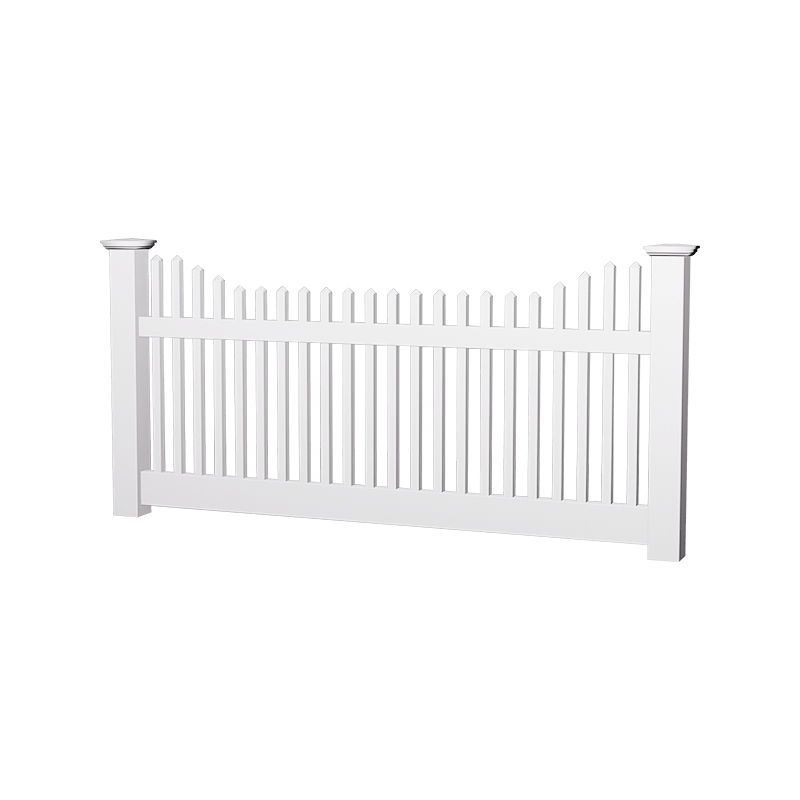 +86-572-8086381 / 8282992
+86-572-8086381 / 8282992  hzjfence1@hzjfence.com
hzjfence1@hzjfence.com  +86-572-8086381 / 8282992
+86-572-8086381 / 8282992  hzjfence1@hzjfence.com
hzjfence1@hzjfence.com 
Jul 15, 2025
Cleaning a PVC picket fence is a straightforward process that can keep your property looking pristine. Unlike traditional wood fences, vinyl fencing, also known as plastic picket fencing or synthetic picket fences, is remarkably low-maintenance and resistant to rot, rust, and pests. Regular cleaning not only enhances its appearance but also prolongs its lifespan.
Before you begin, gather the necessary tools and cleaning agents. You'll likely need:
Garden hose with a spray nozzle: For rinsing.
Soft-bristle brush or sponge: To gently scrub surfaces. Avoid abrasive brushes that could scratch the PVC.
Two buckets: One for your cleaning solution, one for clean rinse water.
Mild dish soap or a specialized PVC cleaner: These are generally safe and effective. Avoid harsh chemicals, bleach (unless highly diluted and tested in an inconspicuous area), or abrasive cleaners as they can damage the vinyl.
White vinegar (optional): For stubborn stains or mildew.
Microfiber cloths (optional): For drying and polishing.

Follow these steps for an effective and safe cleaning of your PVC picket fence:
Begin by rinsing the entire fence with your garden hose. This will remove loose dirt, dust, spiderwebs, and any superficial debris, making the subsequent cleaning much easier. Work in sections if you have a long fence.
For most general cleaning, a simple solution of warm water and a few squirts of mild dish soap will suffice. Fill one of your buckets with this mixture. If you're dealing with more persistent grime or mildew, you can add about a cup of white vinegar to the soapy water, or opt for a commercial vinyl fence cleaner designed for PVC. Always follow the manufacturer's instructions for specialized cleaners.
Dip your soft-bristle brush or sponge into the cleaning solution and start scrubbing the fence pickets and rails. Apply gentle pressure, working in small sections. Pay extra attention to areas with noticeable dirt buildup, grime, or mildew. For stubborn spots, let the solution sit for a few minutes to penetrate the grime before scrubbing again.
If you encounter mildew or mold, a solution of equal parts white vinegar and water can be very effective. Spray or apply this mixture directly onto the affected areas, let it sit for 10-15 minutes, and then scrub with your brush. For very tenacious mildew, a highly diluted bleach solution (1 part bleach to 10 parts water) can be used, but always test it on an inconspicuous area first to ensure it doesn't discolor the vinyl. Rinse thoroughly immediately after using bleach.
Once you've scrubbed a section, immediately rinse it thoroughly with your garden hose. It's crucial to remove all traces of the cleaning solution to prevent streaks or residue buildup. Work from top to bottom, ensuring the rinse water flows away from previously cleaned sections.
After rinsing, inspect the cleaned section. If you notice any remaining dirt or stains, repeat the scrubbing and rinsing process.
While not strictly necessary, you can use microfiber cloths to dry the fence, especially if you want to avoid water spots, particularly in hard water areas. Some specialized PVC cleaners also offer a "polish" effect, leaving your plastic fence with a renewed sheen.
To keep your PVC picket fence looking its best with minimal effort:
Regular light cleaning: Aim to rinse your fence with a hose every few weeks, especially after heavy winds or rain, to prevent dirt buildup.
Address stains promptly: The sooner you tackle a stain, the easier it will be to remove.
Trim vegetation: Keep bushes, trees, and vines from growing directly against the fence, as they can trap moisture and promote mold growth.
Avoid harsh chemicals: Stick to mild soaps or cleaners specifically designed for vinyl.
By following these simple steps, your PVC picket fence, whether you call it a vinyl fence or a synthetic fence, will remain a beautiful and durable addition to your property for years to come.